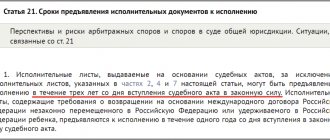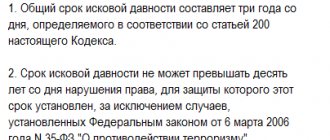Having received housing, and not only that, from someone (relatives, close people) as a gift, you are not insured against the fact that other applicants will encroach on the property legally given to you. Distant relatives who have been silent for years may take away from you what was given to you many years ago. To avoid such troubles, you should understand the intricacies of invalidating a gift agreement and the statute of limitations on it.
General limitation period for donation
A voidable transaction is a type of invalid agreement other than those recognized by law as void.
The court carries out the procedure; only it has the right to make such a decision based on the evidence provided by the parties.
Donation is a simple procedure. As soon as the parties sign the agreement, the donor transfers the property to the donee, and he registers his rights as an owner in Rosreestr. As soon as the new agreement is registered, there is a possibility of challenging it in court.
Learn important things: Registration of rights to real estate: procedure
Sometimes citizens initiate the process after a long time. According to the provisions of Article 195 of the Civil Code of the Russian Federation , the limitation period is the time given to a person to protect his violated rights.
The plaintiff's claims arise when:
· from the donor - decided to cancel the agreement and return the transferred property;
· from the donee – demand the promised;
· creditors and pledgees – the gift transferred to the recipient was previously subject to foreclosure;
· heirs of the donor – return the property of the deceased.
Legally, the transaction is considered voidable, although it is difficult to fulfill. After all, both parties were sane when signing the agreement and knew the consequences of their decisions.
The statute of limitations established by law is short, 1-3 years , depending on the wording of the claim.
Grounds and conditions for cancellation of the agreement
The legislation clearly states the reasons why the donor of an apartment can abandon his intentions. Regarding the donee who wants to return the gift, the legislation does not impose such requirements.
If before the moment of refusal of the gift the gift agreement was not registered, then it will not be difficult to refuse the gift.
The gift agreement is considered executed after registration of the donee's ownership of the real estate. According to Art. 578 of the Civil Code of the Russian Federation, in case of cancellation of the donation, the gift must be returned in the condition that was at the time of donation.
Apartments
Often this type of real estate becomes a “bone of contention” between the parties. According to the law, the owner has the right to give the property to anyone, even a stranger. Relatives who consider themselves legal heirs are opposed.
The general statute of limitations for such procedures is:
- 3 years is a general rule that applies to all void transactions;
- 1 year – voidable transactions or recognized as such through the court.
Expert opinion
Nina Matveeva, real estate consultant
If you miss this time, you will have to restore it. Here it is important for the plaintiff to provide compelling arguments for his delay. This is established by the Civil Code, and the parties cannot change the time privately. Any agreement between them will be illegal.
Shares in the apartment
You can donate not all, but part of the property. The main thing is the status of the owner. If he is the owner, he has freedom of action. The statute of limitations for challenging such agreements is one – 3 years . However, other circumstances may arise. For example, the gift involved cash and the transfer of cash was documented.
There will be some nuances:
· the statute of limitations for challenging a transaction will remain unchanged;
· the procedure may change, then the time will increase;
· the agreement is canceled upon receipt of cash in exchange for a completed deed of gift;
· if the donor takes money in exchange for the property being given away, the agreement can be officially recognized as a purchase and sale.
Find out important things: Donating a share in an apartment - how it happens
By law, money should not appear in such procedures. The recipient of the property takes the property for free. And he bears no reciprocal obligations. Otherwise, the donation will be cancelled.
Cancellation periods before and after registration
The donee has the legal right to refuse the gift before the transaction is completed. Regarding real estate, this is the period until the deed of gift is registered in Rosreestr. Before registering property rights, it is enough to go to the notary who certified the donation agreement and declare the need to draw up a new document. In this case, the donor’s consent is not required for refusal.
If the donee refuses the gift after registration of ownership in Rosreestr, then it is necessary to obtain the consent of the donor (preferably in writing) to cancel the transaction. When a compromise is reached, the parties enter into a new agreement, which is registered in Rosreestr.
Shares in LLC
A citizen has the right to donate only the paid-up portion of the authorized capital (his share of the LLC). Moreover, the charter must contain the conditions under which the procedure will take place. And the consent of other members of society.
The deal is declared invalid in court. The authorized person writes a claim to the arbitration court:
- the donor or his representative;
- a person whose rights were violated after the conclusion of the agreement (for example, an heir);
- a prosecutor representing the interests of the donor.
The plaintiff needs to prove his case. According to the provisions of Article 181 of the Civil Code of the Russian Federation, the time limit for all voidable transactions is 1 year, and void transactions are 3 years. The opportunity to initiate a case remains even after the expiration of this period. The concept of “limitation period” will be used if one party declares this in advance.
Revocation of the decision by the donor
Most often, the initiator of the revocation of the deed of gift is the donor. The donor can cancel his decision pre-trial or through the court.
Pre-trial
To avoid litigation, both parties to the contract should not object to the termination of the transaction. To document the decision, you will need a notary who will draw up a new document. In such situations, the recipient of the gift writes a deed of gift to the donor.
If the first gift agreement contained a clause indicating the possibility of terminating the agreement with mutual consent of the parties, then it is possible to draw up not a new gift deed, but a termination of the agreement.
In court: step-by-step instructions
If the parties do not reach an agreement, then they need to go to court. The main task of the plaintiff will be to provide evidence that the court would consider significant.
Jurisdiction
The claim must be filed in the court that has jurisdiction over the defendant. The plaintiff can choose jurisdiction independently if the defendant’s place of residence is unknown (Article 29 of the Code of Civil Procedure of the Russian Federation). A claim regarding termination of the deed of gift can be filed at the location of the apartment or at the last known place of residence of the defendant in the Russian Federation.
If the claim concerns several defendants at once, then the claim can be filed at the residential address of one of the defendants.
Documentation
To file a claim in court, you will need the following documents:
- statement;
- donor's passport;
- copy of the deed of gift;
- an extract from the register confirming the transfer of ownership to the recipient of the gift;
- evidence confirming the validity of the claim;
- bank statement confirming payment of state duty.
Filing a claim
When filing a claim, indicate:
- name of the court to which the appeal is sent;
- full information about the plaintiff and data about the defendant;
- the exact wording of the requirement (to invalidate the contract or terminate the agreement);
- cost of claim;
- evidence, circumstances and justification (what causes the claim);
- documents confirming these facts.
We do not recommend completing the documents yourself. Save time - contact our lawyers by phone:
8 (800) 302-76-94
Proof
In order for the court to invalidate the deed of gift, significant evidence must be presented. This can be witness testimony, certificates, medical reports, extracts, video recordings.
To recognize a gift transaction as void, you can provide a receipt for the transfer of money to the donor from the donee. Evidence may be the testimony of lawyers, notaries to whom the parties turned for help, or witnesses to the transaction.
If the transaction is disputed due to violence against the donor, then statements of a corresponding nature to the local police officer or the police, SMS messages, letters can serve as evidence.
Duration and cost of the procedure
After receiving the claim, the judge must make a decision within five days to consider the case or to refuse to consider the case.
The institution of first instance has the right to consider civil disputes within two months. The dissenting party can then appeal. Such proceedings may drag on for several months. Therefore, you need to ask whether the decision has been reversed.
The cost of legal support services starts from 10,000 rubles. State registration of a new agreement will cost the applicant 2,000 rubles, and issuing a certificate will cost 200 rubles.
If the plaintiff demands that the transaction be declared invalid, then a state fee of 300 rubles is paid. If you had to go to court to return the property, then according to Art. 333.24 of the Tax Code of the Russian Federation, you will need to pay a state duty in the amount of 13,200 rubles. plus 0.5% of the excess of 1 million rubles, but not more than 60,000 rubles. (if the value of the claim is more than 1 million rubles).
Car
Here, the limitation period depends on the prevailing circumstances, due to the occurrence of which the citizen decided to challenge the donation. According to the general rules, he will have 3 years to prepare documents and file a claim.
It is possible to apply at a later time if the initiator of the process learned about the deed of gift late. He will have to document his ignorance and the fact of violation of rights.
By law, a donation is considered a final transaction with irreversible consequences. It's hard to argue with him.
Find out important things: Donation agreement with encumbrance
Can the new owner return the living space?
You can return the gift back if the recipient changes his mind for some reason about becoming the owner of the home. There can be many reasons:
- reluctance to aggravate the situation with the relatives of the generous donor;
- the apartment is donated with an encumbrance (debts, credit, there is a right of lifelong residence of other people);
- emergency condition of housing;
- doubts regarding the donor’s legal capacity;
- conflict between the donor and the recipient;
- inability to pay taxes and maintain the apartment in the future;
- Some donors deprive relatives of their inheritance this way, and recipients refuse for moral reasons.
According to Art. 573 of the Civil Code of the Russian Federation, the donee is not obliged to provide the reason for refusing the gift.
Is it possible to cancel a deed of gift?
An effective way to cancel a transaction is to recognize the gift agreement previously concluded between the parties as void.
The following reasons are considered significant:
1. Lack of state registration of the agreement in Rosreestr - then the donor will remain the owner.
2. The document contains a clause according to which the donee must provide the donor with a service in return or transfer a certain amount of money.
3. The donor insists that the donee will receive the property later, after the death of the owner. This condition applies to a will.
4. The deed of gift was incorrectly drawn up; the parties managed on their own without a notary.
Find out important things: Deed of gift for an apartment from a notary - what you need to know
5. The recipient treats the property with disdain , as a result of which the object is destroyed. The main role is given to the moral side of the issue. It is important to explain to the court what value the gift is for the former owner, but is not needed by the recipient.
6. Physical violence inflicted by the recipient on the donor or his relatives. Moreover, it was done intentionally. Medical certificates, statements of the victim, and testimony of witnesses will help confirm this.
7. The donor was insane on the day of the transaction due to alcohol or drug use.
turned out to be bankrupt at the time of concluding the agreement - this applies to legal entities.
9. Death of the recipient. If the text of the deed of gift does not contain a statement about the possibility of transferring property to the relatives of the deceased.
Learn important things: How to Challenge or Cancel a Deed of Gift
A lawyer will suggest a solution if the initiator has no experience. The claim is filed in the local court at the location of the real estate - the gift.
Who has the right to terminate the agreement?
, as well as third parties, can terminate the gift agreement
Donor
The donor can cancel the donation transaction if the donee has made an attempt on his life or the life of close relatives. Intentional infliction of bodily harm is also grounds for termination of the contract.
The second reason for canceling the deed of gift is the commission by the recipient of the gift of actions that create the threat of irretrievable loss of the apartment (Article 578 of the Civil Code of the Russian Federation).
Only the donor himself can cancel a donation for this reason. Heirs do not have such a right.
If the donee dies before the donor, the latter has the right to revoke the gift.
The donor has the right to refuse the gift agreement if the agreement was concluded for the future. According to Art. 577 of the Civil Code of the Russian Federation, the donor can make such a decision if life circumstances have changed significantly after the conclusion of the contract, and the execution of the contract will lead to a significant decrease in his standard of living.
Recipient
Legislatively, the right of the donee to refuse a gift is enshrined in Art. 573 Civil Code of the Russian Federation. The refusal can be formalized by a deed of gift to the former owner or by concluding an agreement to cancel the gift agreement.
The easiest way is to refuse the gift before or during the conclusion of the deed of gift.
If the recipient wanted to return the donated apartment, how to return it back to the donor after signing the agreement, when he does not agree? To resolve this conflict they go to court.
Third parties
Third parties include parties whose interests were infringed as a result of the transaction (this could be government agencies or other family members).
On the part of guardianship authorities or investigative authorities, a real estate donation transaction may be canceled for the following reasons:
- The gift agreement was not registered with the Federal Registration Service.
- A mandatory condition (the transaction is free of charge) has been violated.
- The agreement contains a clause on the transfer of ownership after the death of the donor. Read more about whether it is possible to challenge a deed of gift after the death of the donor and who has the right to do so here.
- The information provided in the contract contains errors.
- In the drawn up agreement there is no signature of one of the parties (donor or donee).
- A gift agreement infringes on the rights of a minor or incapacitated person.
Cancellation of a donation may occur on the basis of a claim by interested persons or relatives of the donor.
It is possible to submit a request to cancel a donation if:
- the recipient of the gift committed actions that led to the death of the donor;
- At the time of concluding the donation agreement, the donor was incapacitated.
Third parties can challenge the deed of gift only in court.
Where to calculate the deadline
According to the provisions of Article 200 (Part 1) of the Civil Code of the Russian Federation, the limitation period starts from the day when the interested person learned/should have found out the fact of a violation of rights. And the name of the defendant in the future lawsuit.
The point of reference thus depends on the identity of the plaintiff:
A. One of the participants decided to challenge the transaction from the moment the contract was actually concluded. Day to Stop Threats or Use of Violence.
B. Another person disputes. The countdown will begin at the time when the citizen found out about his violated rights.
It is necessary to set the deadline with a specific calendar date and period (year, week, month, day, even hour). It begins on the day following the day after the appointed date.
Another option is the occurrence of a certain event.
For example, it is calculated:
· years – expires on a specific date + month;
· months – ends on a pre-specified date from the last month;
· weeks – the corresponding day from the last week.
If the date falls on a weekend or some holiday, then it will be moved to the next working day.
How long is the deed of gift valid?
The document drawn up and signed comes into force immediately after passing the state registration procedure.
After this, the document is considered unlimited, that is, its validity is not limited. However, in some cases it may be challenged in court.
Expert opinion
Novikov Konstantin Yakovlevich
Lawyer with 8 years of experience. Specialization: family law. Extensive experience in protecting legal interests. Evgeniy
In some cases, the donor specifies the time after which the agreement comes into force. If it is drawn up at home by hand, registration is carried out within three years from the date of compilation.
How is it calculated?
To challenge a transaction, the legislator determines a 3-year period from the date of actual signing of the contract by the parties. Or the day when the interested party learned about the infringement of rights that had occurred.
The plaintiff can, if there are good reasons, extend the time, the main thing is to provide the court with comprehensive evidence.
There is a total period for which citizens retain the opportunity to challenge a transaction - 10 years . It is considered from the moment the deed of gift is actually drawn up. If this time expires, there will be practically no chance to cancel the deal.
Is it possible that the property cannot be returned?
The most common reason for refusing to cancel a deed of gift is a change in the owner of the apartment. If the donee has already exercised his right to dispose of the apartment (donated it, sold it, etc.), it will be very difficult to return the property to the donor.
The agreement to terminate the deed of gift should not have two-valued interpretations or conventions. Otherwise, Rosreestr has the right to refuse registration of documents.
The court has the right to refuse the donor or donee in the absence of grounds (strong evidence) to cancel the agreement. If the court of first instance refuses the plaintiff, then if there is strong evidence, it is worth seeking the truth in the higher courts by filing an appeal.
The law reserves for the donor the right to cancel the deed of gift in order to protect his interests in the event of malicious ingratitude of the recipient of the gift. But the desire to “annoy” the donee alone will not be enough to cancel the contract.
If there is mutual agreement to terminate the contract, there will be no problems with canceling the deed of gift. But judicial practice shows that cases of reaching a compromise in real estate matters are very rare.
Restoring the deadline
This is an opportunity to protect infringed rights after the expiration of a specified time. But to bring this idea to life, the plaintiff must have a compelling reason for his delay. And document it.
The court takes into account the following reasons:
1. Serious illness - there is no such term in medicine or civil law. This means that a person spends a long time in a hospital or other medical institution for treatment. The disease itself, its symptoms and course are unimportant.
2. Helpless state - caused by the use of alcohol, drugs, heavy medications or emotional distress.
3. Illiteracy - the plaintiff did not know the language and was deprived of the ability to read or write. Usually this reason applies to foreigners.
4. Long-term care - a citizen looked after a sick relative.
5. Served in the army - they are rarely released from there and the period of service is significantly more than 3 months.
6. Serving the assigned sentence in prison.
7. Long business trips - related to the permanent work of a citizen.
It is acceptable to use another reason, the main thing is that it must objectively prove the impossibility of attending court at the appointed time.
It didn’t matter if the citizen was far away, his physical condition didn’t allow it, or he didn’t know.
For a void contract
The invalidity of such agreements is determined by the provisions of the current law. It turns out that they will be invalid on the day of the actual conclusion. Moreover, without a court decision . Interested parties whose rights were violated due to the deed of gift can initiate proceedings themselves. The court will officially confirm the nullity of the transaction.
It is important to file a claim in a timely manner; the citizen will have 3 years:
· transaction participant – from the day of actual execution of the agreement;
· interested person - from the day when he learned about the deed of gift or theoretically should have known.
You can find out how much time you have to file a claim from a lawyer by showing him a copy of the deed of gift.
For a voidable contract
Such transactions are recognized as invalid only by the court, because their execution will entail a number of legal consequences. If they were initially concluded with violations, then a participant or citizen whose candidacy is confirmed by law will be able to initiate legal proceedings. The plaintiff will have 1 year (Article 181 of the Civil Code of the Russian Federation).
The time is counted:
- from the day the plaintiff found out about the deed of gift;
- from the day the threats or physical violence against the plaintiff, under which the transaction was originally concluded, ceased.
If the latter occurs, it is important for the victim to document the extent of the threats and violence used. Provide certificates of the recorded beatings, as well as other evidence.
Find out important things: Deed of gift between spouses - how to draw it up correctly





